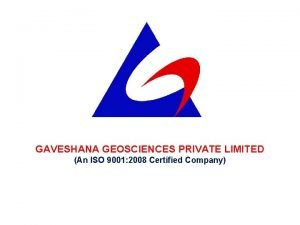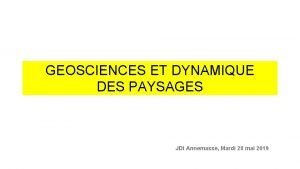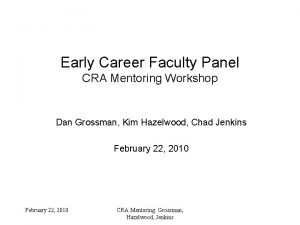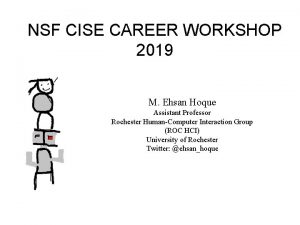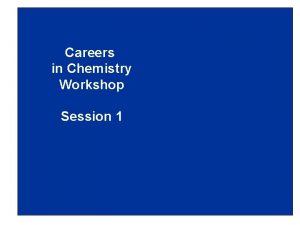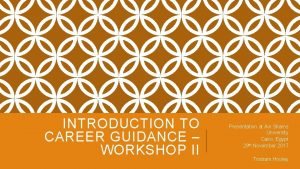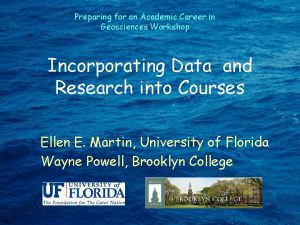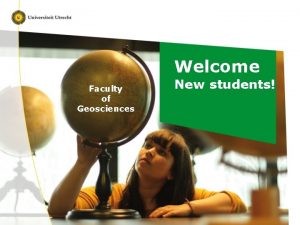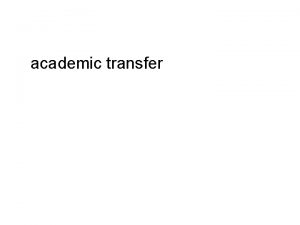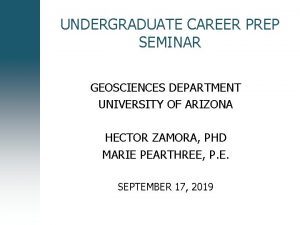Preparing for an Academic Career in Geosciences Workshop









- Slides: 9

Preparing for an Academic Career in Geosciences Workshop: Summer 2011 Student Assessment Rachel O’Brien, Allegheny College

Types of assessment • Formative vs. summative • Qualitative vs. quantitative

Types of assessment • Formative vs. summative • Qualitative vs. quantitative Key point to remember: You can only assess something that is easily measured by a defined metric

Student learning objectives • Start your design of the course—and the assessment--with these in mind • You want to define specific, directly observable actions • We often choose that are hard to measure: know, understand, appreciate

Bloom’s Taxonomy • • • Creating Evaluation Analyzing Applying Explaining, interpreting, classifying Remembering Anderson et al. , 2001. A taxonomy for learning, teaching, and assessing. NY: Longman.

Assessing learning objectives Written assignments (both in and out of class) Exams (either standardized or your own) Written critiques of reports or articles Field books Project/lab reports Poster presentations Speeches and/or debates Professional writing samples Journals

Student feedback is a form of assessment! One minute paper Pre-course survey or inventory In-class surveys Summative surveys

Assessment Rubrics • Provide a documented means for you to explain how a student performed • Best if given out before the assignment/task

Useful references • Angelo, T. A. & Cross, K. P. (1993) Classroom assessment techniques: A handbook for college teaching, 2 nd ed. Josey Bass • Diamond, R. M. (2008) Designing and assessing courses and curricula, 3 rd ed. JW Wiley
 Gaveshana geosciences private limited
Gaveshana geosciences private limited Géosciences et dynamique des paysages
Géosciences et dynamique des paysages Pretest: developing an academic and career plan
Pretest: developing an academic and career plan Proposal writing on career guidance workshop
Proposal writing on career guidance workshop Cra career mentoring workshop
Cra career mentoring workshop Cise career workshop
Cise career workshop Career workshop objectives
Career workshop objectives Proposal writing on career guidance workshop
Proposal writing on career guidance workshop Proposal writing on career guidance workshop
Proposal writing on career guidance workshop Formulas for career success career testing & investigation
Formulas for career success career testing & investigation
